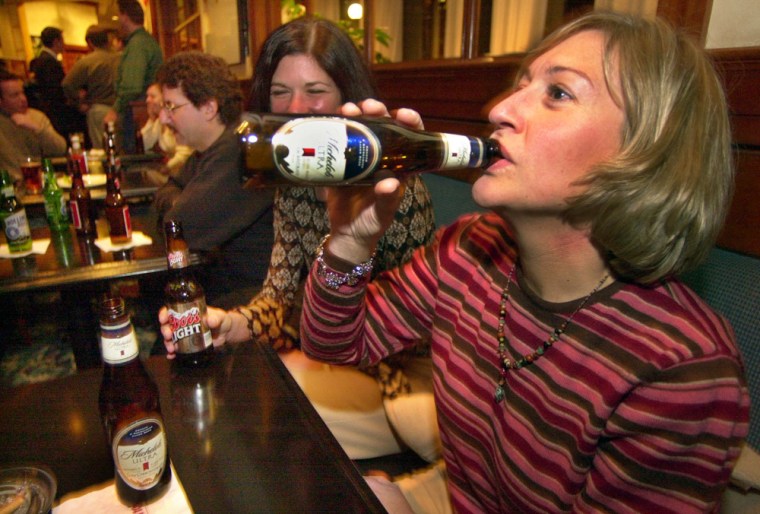Consumers counting carbohydrates and calories may soon see that information on the labels of their favorite rum, scotch and other liquors.
While it's up to the individual company to decide whether to provide such information, Peter Cressy, president of the Distilled Sprits Council, said Friday that he expects consumers to start seeing labels containing carb and calorie information on some liquor products within a couple of months.
A ruling by the Treasury Department's Alcohol and Tobacco Tax and Trade Bureau on Thursday made clear that liquor and wine companies that want to provide carb and calorie information on their labels and advertising can do so, just as some beer companies now do.
Cressy believes this is good for his industry.
"More and more consumers are seeking information about the carbohydrate and caloric content of what they eat and drink," Cressy said. Many of the industry's products, including vodka, tequila, whiskey, bourbon, scotch, gin and rum, contain no carbohydrates, he said.
Providing such information on liquor labels and advertising "is a good thing and will help consumers make choices," he said.
'Low carb' defined
As part of the ruling, the bureau also issued an interim standard for the use of the term "low carbohydrate" that would be followed by beer, wine and liquor companies that want to provide such information on their labels.
The bureau said that the term "low carbohydrate" may be used in labeling and advertising of alcohol beverages that contain no more than 7 grams of carbohydrates per serving.
"That is new. Prior to this, there was no number set in terms of what can be claimed as low carbohydrate and we wanted to come forward with some kind of mark for the consumer as to what is meant by low," said Art Resnick, spokesman for the bureau.
What qualifies as "low carbohydrate" may change as the bureau goes through the process of adopting final rules, Resnick said.
Information about carb and calorie content must be truthful in labels and in advertisements. False and misleading statements are prohibited. Information that implies that "consumption of low-carbohydrate alcohol beverages may play a healthy role in a weight maintenance or weight reduction plan" would be considered misleading and thus prohibited, the bureau said.
Even moderate consumption of alcohol beverages poses health risks for some people, the bureau said.
Companies wanting to provide carb and calorie information also need to provide information on the protein and fat content of the product, the bureau said.
